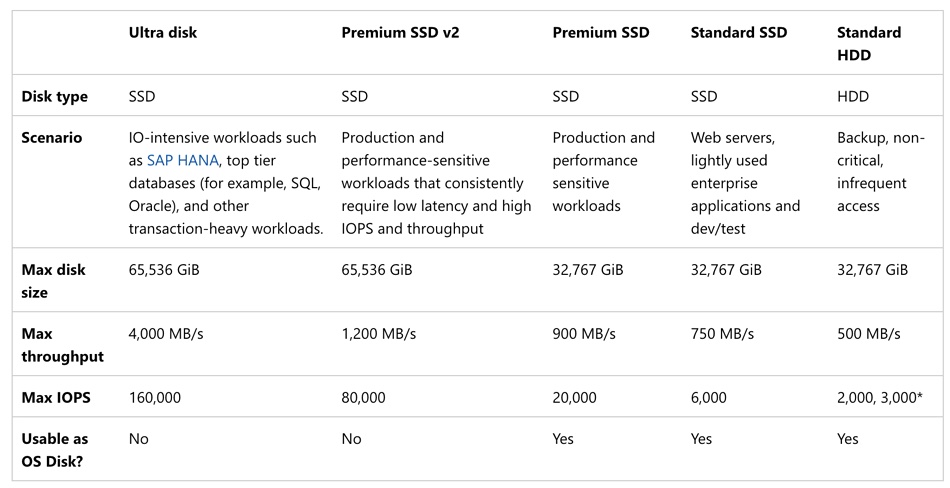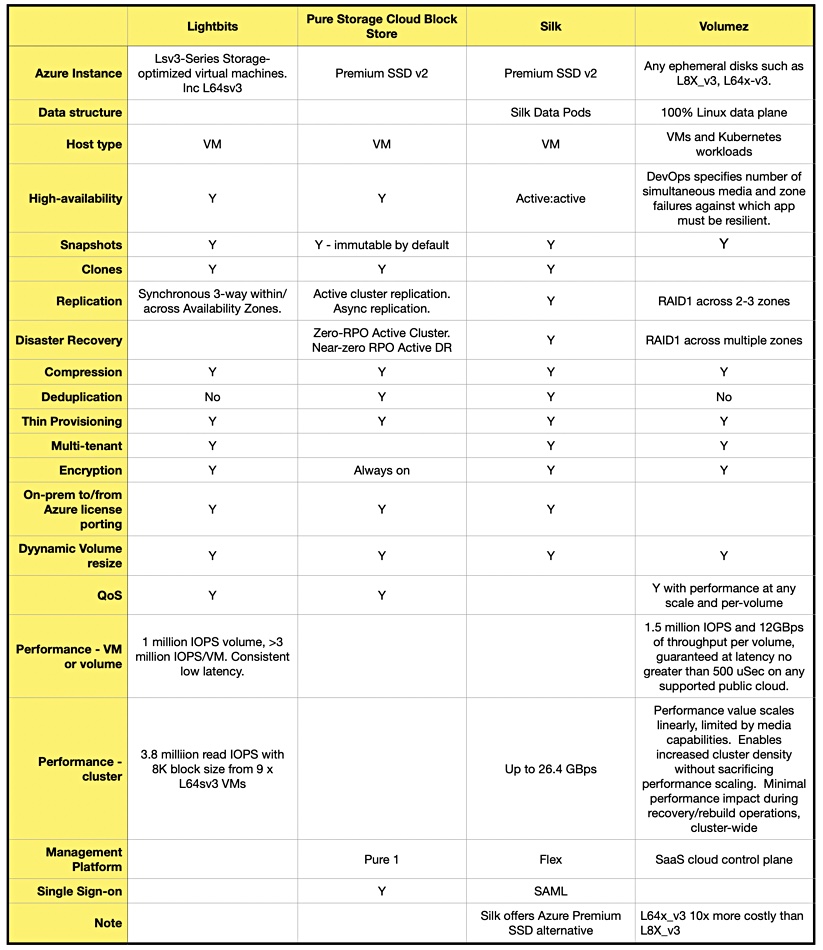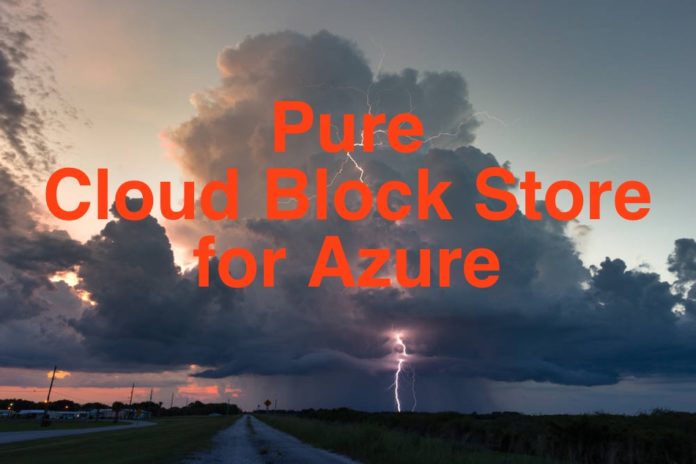Pure Storage’s Azure Cloud Block Store, its FlashArray Purity operating environment in Microsoft’s cloud, now supports Premium SSD v2 Disk Storage instances. This feature separates storage from compute to reduce costs and is in preview for the Azure VMware Solution (AVS).
Update: Pure Storage table entries added and cost saving quote updated. Lightbits table entries updated, 23 Aug 2023. Silk table entries updated, 24 Aug 2023. Volumez table entries updated, 25 Aug 2023.
Introduced in 2021, Cloud Block Store (CBS) for Azure enhances Microsoft’s fully managed VMware-as-a-Service offering – the Azure VMware Solution (AVS). Purchased by customers based on host nodes, AVS integrates compute, memory, network, and vSAN storage. However, this integration can escalate costs for those simply seeking increased storage since it necessitates the concurrent purchase of added compute and networking resources.
Pure chief product officer Ajay Singh said: “This expanded partnership between Pure Storage and Microsoft creates a significant milestone, ushering in a new age of cloud migration, and ultimately driving faster, more cost effective adoption of cloud services.”
Upon its debut, CBS for Azure employed Azure Ultra Disk Storage instances, block-level storage volumes paired with Azure Virtual Machines. The Azure alternatives encompass premium SSDs, Premium SSD v2, standard SSDs, standard HDDs, and the Elastic SAN (currently in preview), which consolidates a customer’s Azure storage needs. A table summarizes their characteristics:

As the table shows, Premium SSD v2 offers 80,000 IOPS, half of Ultra Disk, yet quadruple that of a regular Premium SSD instance (20,000 IOPS). Its throughput stands at 1,200MBps, below the 4,000MBps of UltraDisk but above the Premium SSD instance’s 900MBps.
Pure says it has worked with a new version of CBS to make its use of Premium SSD v2 instances as fast as before. Cody Hosterman, Pure’s senior director of product management for cloud, told us: “Based on Premium SSD v2 inside of Azure, we were able to take this less expensive tier versus Ultra without any performance change on our side.”
Further benefits of CBS on Premium SSD v2 include immutable Safemode snapshots, compression, deduplication, thin-provisioning, multi-tenancy, encryption, disaster recovery, and high availability. Importantly, it allows for flexible storage scalability independent of compute resources, a limitation of the Ultra disk instances. Hosterman said “Our new premium model is 1/3 the cost of the previous model, … but the overall savings to their cloud storage bill is usually more like 40 percent.”
He says this enables customers to migrate on-premises workloads more cost-effectively, with potential reasons including business continuity and DR, datacenter expansion to include the cloud or the reverse – datacenter reduction and to use VDI.
Microsoft and Pure’s collaborative efforts have paved the way for CBS Azure to serve as an external block storage option for AVS. Pure says this is the first external block storage for VMware Cloud. Microsoft built a framework with its PowerShell to enable vSphere VMFS (Virtual Machine File System) support. Pure integrated this AVS PowerShell with its own PowerShell SDK to make a new version of its Plugin in VMware Cloud Manager enabling Azure AVS customers to use Cloud Block Store.
Hosterman said a 100TB AVS configuration using vSAN could need 10 AV36 host nodes. Moving to Pure’s CBS reduces that number to three and provides cost savings, he claimed – 56 percent on hourly commit, 50 percent on one-year reserved and 42 percent on three-year reserved rates.
Singh said: “Pure Cloud Block Store for Azure VMware Solution is just the beginning. By optimizing performance and cost at scale, we look forward to unlocking the number of mission-critical use cases that we can serve in the coming years.”
In simpler terms, with these enhancements, migrating on-premises, storage-intensive database workloads to Azure becomes more economical.
Competition
Azure’s block storage space also hosts other third-party suppliers: Lightbits, Silk, and Volumez. A preliminary comparison, based on publicly available documentation, outlines their offerings relative to Pure on the Azure platform. However, this should be regarded as a basic overview rather than a comprehensive analysis:

For comparison, AWS block storage competitors include the likes of Infinidat and Dell’s PowerFlex (formerly ScaleIO).








